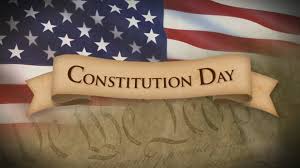
Breaking News
 Will the Next First Turning Be to Technocracy?
Will the Next First Turning Be to Technocracy?
 Business Insider: Factcheck Your AI Stories Or Else
Business Insider: Factcheck Your AI Stories Or Else
BREAKING EXCLUSIVE: Judge Delays Tina Peters Justice, Orders Colorado AG to Answer...
 "This Individual Needs To Be Investigated!" Alex Jones Responds To Deranged Leftist Destin
"This Individual Needs To Be Investigated!" Alex Jones Responds To Deranged Leftist Destin
Top Tech News
 This "Printed" House Is Stronger Than You Think
This "Printed" House Is Stronger Than You Think
 Top Developers Increasingly Warn That AI Coding Produces Flaws And Risks
Top Developers Increasingly Warn That AI Coding Produces Flaws And Risks
 We finally integrated the tiny brains with computers and AI
We finally integrated the tiny brains with computers and AI
 Stylish Prefab Home Can Be 'Dropped' into Flooded Areas or Anywhere Housing is Needed
Stylish Prefab Home Can Be 'Dropped' into Flooded Areas or Anywhere Housing is Needed
 Energy Secretary Expects Fusion to Power the World in 8-15 Years
Energy Secretary Expects Fusion to Power the World in 8-15 Years
 ORNL tackles control challenges of nuclear rocket engines
ORNL tackles control challenges of nuclear rocket engines
 Tesla Megapack Keynote LIVE - TESLA is Making Transformers !!
Tesla Megapack Keynote LIVE - TESLA is Making Transformers !!
 Methylene chloride (CH2Cl?) and acetone (C?H?O) create a powerful paint remover...
Methylene chloride (CH2Cl?) and acetone (C?H?O) create a powerful paint remover...
 Engineer Builds His Own X-Ray After Hospital Charges Him $69K
Engineer Builds His Own X-Ray After Hospital Charges Him $69K
 Researchers create 2D nanomaterials with up to nine metals for extreme conditions
Researchers create 2D nanomaterials with up to nine metals for extreme conditions
Constitution Day and Tucker's Rule

According to Nicholas Kent, an undersecretary at the Department of Education, "Constitution Day presents an annual opportunity to promote civic awareness and understanding about the Constitution among your students and the broader school or campus community."
Although it is probably not what Undersecretary Kent had in mind, real civic awareness would mean a study on how our Constitution has been molded via dishonest interpretation and has assumed its present degraded form.
James Madison and Alexander Hamilton, when urging ratification in The Federalist Papers, assured the people that the general government would exercise, in Madison's words, "few and defined" powers directed mostly to foreign affairs and trade. They denied that the new government would have the power to infringe on the reserved powers of the states.
Pro-ratification forces also denied that Americans needed a bill of rights. The federal government possessed no broad police power to legislate on the health, welfare, and morals of the people. While bills of rights were appropriate for state constitutions (many of which vested their legislatures with broad authority), the federal Constitution was a different animal—supposedly a much tamer animal.
The Anti-Federalists (those who opposed ratification of the Constitution) were not calmed by these assurances. Elbridge Gerry of Massachusetts, who refused to sign the Constitution at the Philadelphia Convention, complained that "some of the powers of the [national] legislature are ambiguous, and others indefinite and dangerous." He and other Anti-Federalists believed there would be ample opportunity for the federal government to claim greater authority than Madison promised.
Within the first decade or so under the Constitution, leaders in the federal government forgot or ignored the promise of limited powers. Through extremely loose construction, they claimed Congress could incorporate a national bank (a power the Philadelphia Convention purposefully withheld). Congress even criminalized criticism of the federal government, although there was no enumerated power pertaining to the thoughts, speech, and writings of the people. Power grabs by implication and ambiguity ruled the day and accelerated as time marched on.
Today, judges, members of Congress, and the president see the words of the Constitution as malleable reference points designed to bend and morph with evolving values and human aspirations. Certainty and restraint are exchanged for pliancy and dynamism.
Without seeking amendments to the Constitution, the national government has claimed myriad new powers. For example, Congress regulates the amount of wheat a farmer can grow for personal consumption, the president sends the armed forces into "hot zones" without even a nod to the national legislature, and the Supreme Court strikes mundane state laws governing various internal matters. All of this happens without an enumerated power over agriculture, a war power vested in the executive, or a constitutional license for the federal courts to evaluate the wisdom of state policy decisions.



